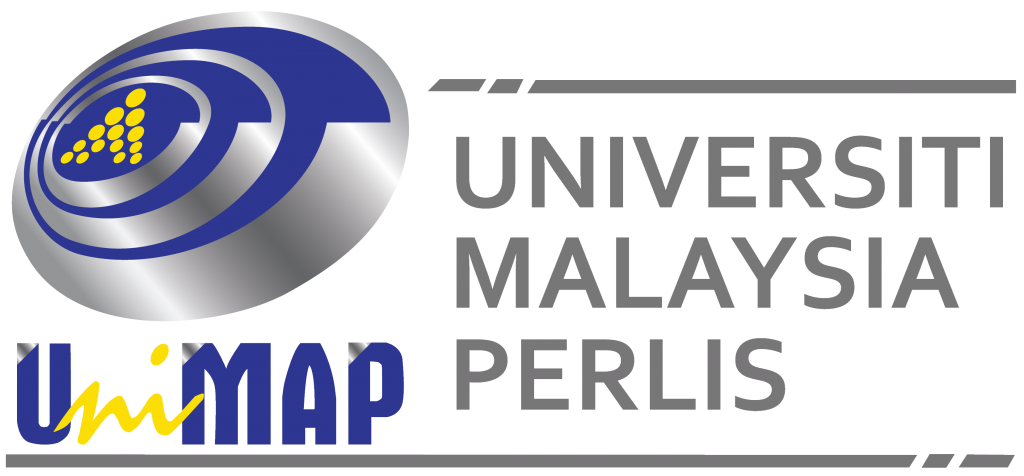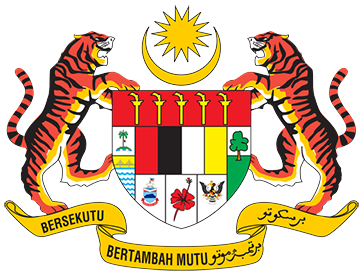Bachelor of Electrical Engineering Technology (Hons.) (Industrial Power)
Ijazah Sarjana Muda Teknologi Kejuruteraan Elektrik (Hons) (Kuasa Industri)
- Overview
- Career Path
- Subject
- Fees / Entry Requirement
This programme focuses on the needs of leading electrical engineering technologies to develop an engineer that have more practical skills and knowledge to solve the real problems at the workplace. This programme is known for quality and responsiveness to industry. In addition to a solid foundation in industrial power concepts, students will learn the most current and relevant topics for today’s advanced technologies. Real world theory and applications are emphasised throughout the in industrial power technology degree program and theory is balanced with extensive hands- on experience.
Career Opportunities There is a consistent demand for highly skilled electrical engineer in private and government sector especially in maintenance, operation and electrical services. Career prospect for our graduates are very promising.Among the fields that may be ventured into by the graduates are but not limited to:
1
Electrical Power Distribution Sector
2
Electronic and Instrumentation Sector
3
Renewable Energy and Energy Management Sector
4
Education Sector
5
Manufacturing Sector
This program is designed to provide students with adequate fundamental knowledge and strong skills that will allow the students to work with current and future engineering technologies. Students in this program gain a solid basic education in electrical-electronic design principles and technical electives to provide some degree of specialization in industrial power.
Semester 1
- EMK10002: Computer Aided Drafting
- EMK10103: Engineering Skills I
- EMK11003: Computer Programming
- EMK11103: Engineering Science
Semester 2
- EMK10203: Engineering Skills II
- EMK11203: Electric Circuit Theory I
- EMK11303: Electronics I
- EMK11403: Digital Electronics
Semester 3
- EMK21003: Electromagnetic Field Theory
- EMK21103: Measurement & Instrumentation
- EMK21203 : Electric Circuit Theory II
- EMK21303: Electronics II
Semester 4
- EMK21403: Electrical Machines Technology
- EMK21503: Microcontroller System
- EMK21603: Power Electronics
- EMK21703: Communications System
- EMK21803: Signal & Systems
Semester 5
- EMK30103: Integrated Design Project
- EMK31003: Drives and Actuators
- EMK31103: Control System Technology
- EMK32003: Electrical Machines Technology II
- EMK32103: Electrical Installation
- EMK32203: Electrical Power System
Semester 6
- EMK30004: Final Year Project I
- EMK31203: Programmable Logic Controller
- EMK31303: Engineering Technology Management
- EMK32303: Renewable Energy System
- EMK32403: Power Quality (Elective)
- EMK32503 : Substation Engineering (Elective)
Semester 7
- EMK40006: Final Year Project II
- EMK41003: Engineering Technologist in Society
- EMK42003: Power System Protection and Switchgear
- EMK42103: Power Electronics and Drives (Elective)
- EMK42203: Industrial Automation (Elective)
- EMK42303: Energy Efficiency and Management (Elective)
- EMK42403: High Voltage Technology (Elective)
Semester 8
- PIT 404: Industrial Training
Click button below for more details on education fees and entry requirements.
- Programme Objectives (PEO)
- Programme Outcome (PO)
The educational objectives of the program are to have students that will achieve the following in their professional career after graduation:
1
Engineering technology graduates engaged in the field of electrical engineering technology as demonstrated through career advancement.
2
Engineering technology graduates who are members and contribute to professional society.
3
Engineering technology graduates embracing in life-long learning or pursuing continuing education opportunities.
4
Engineering technology graduates who are techno-preneurs
The program outcomes are applicable to Bachelor Of Electrical Engineering Technology (Industrial Power) with Honours. The student outcomes are the following learned capabilities:
1
Apply knowledge of mathematics, science, engineering fundamentals and an engineering specialisation to defined and applied engineering procedures, processes, systems or methodologies.
2
Identify, formulate, research literature and analyse broadly-defined engineering problems reaching substantiated conclusions using analytical tools appropriate to their discipline or area of specialisation.
3
Design solutions for broadly-defined engineering technology problems and contribute to the design of systems, components or processes to meet specified needs with appropriate consideration for public health and safety, cultural, societal, and environmental considerations.
4
Conduct investigations of broadly-defined problems; locate, search and select relevant data from codes, data-bases and literature, design and conduct experiments to provide valid conclusions.
5
Select and apply appropriate techniques, resources, and modern engineering and IT tools, including prediction and modelling, to broadly-defined engineering problems, with an understanding of the limitations.
6
Demonstrate understanding of the societal, health, safety, legal and cultural issues and the consequent responsibilities relevant to engineering technology practice and solutions to broadly-defined engineering problems.
7
Understand the impact of engineering technology solutions of broadly-defined engineering problems in societal and environmental context and demonstrate knowledge of and need for sustainable development.
8
Understand and commit to professional ethics and responsibilities and norms of engineering technology practice.
9
Function effectively as an individual, and as a member or leader in diverse technical teams.
10
Communicate effectively on broadly defined engineering activities with the engineering community and with society at large, by being able to comprehend and write effective reports and design documentation, make effective presentations, and give and receive clear instructions.
11
Demonstrate knowledge and understanding of engineering management principles and apply these to one’s own work, as a member and leader in a team and to manage projects in multidisciplinary environments.
12
Recognize the need for, and have the ability to engage in independent and life-long learning in specialist technologies.

Quick Points
Campus:
Kampus Alam Pauh Putra, Perlis
Programme Code:
RY31 (intake 2013 – 2019)
UR6522002 (intake 2020 - current)
Specialisation
Industrial Power
Study Level:
Undergraduate
Intake:
July
Duration:
4 Years
- Overview
This programme focuses on the needs of leading electrical engineering technologies to develop an engineer that have more practical skills and knowledge to solve the real problems at the workplace. This programme is known for quality and responsiveness to industry. In addition to a solid foundation in industrial power concepts, students will learn the most current and relevant topics for today’s advanced technologies. Real world theory and applications are emphasised throughout the in industrial power technology degree program and theory is balanced with extensive hands- on experience.
Career Path
Career Opportunities There is a consistent demand for highly skilled electrical engineer in private and government sector especially in maintenance, operation and electrical services. Career prospect for our graduates are very promising.Among the fields that may be ventured into by the graduates are but not limited to:
1
Electrical Power Distribution Sector
2
Electronic and Instrumentation Sector
3
Renewable Energy and Energy Management Sector
4
Education Sector
5
Manufacturing Sector
Subject
This program is designed to provide students with adequate fundamental knowledge and strong skills that will allow the students to work with current and future engineering technologies. Students in this program gain a solid basic education in electrical-electronic design principles and technical electives to provide some degree of specialization in industrial power.
Semester 1
- EMK10002: Computer Aided Drafting
- EMK10103: Engineering Skills I
- EMK11003: Computer Programming
- EMK11103: Engineering Science
Semester 2
- EMK10203: Engineering Skills II
- EMK11203: Electric Circuit Theory I
- EMK11303: Electronics I
- EMK11403: Digital Electronics
Semester 3
- EMK21003: Electromagnetic Field Theory
- EMK21103: Measurement & Instrumentation
- EMK21203 : Electric Circuit Theory II
- EMK21303: Electronics II
Semester 4
- EMK21403: Electrical Machines Technology
- EMK21503: Microcontroller System
- EMK21603: Power Electronics
- EMK21703: Communications System
- EMK21803: Signal & Systems
Semester 5
- EMK30103: Integrated Design Project
- EMK31003: Drives and Actuators
- EMK31103: Control System Technology
- EMK32003: Electrical Machines Technology II
- EMK32103: Electrical Installation
- EMK32203: Electrical Power System
Semester 6
- EMK30004: Final Year Project I
- EMK31203: Programmable Logic Controller
- EMK31303: Engineering Technology Management
- EMK32303: Renewable Energy System
- EMK32403: Power Quality (Elective)
- EMK32503 : Substation Engineering (Elective)
Semester 7
- EMK40006: Final Year Project II
- EMK41003: Engineering Technologist in Society
- EMK42003: Power System Protection and Switchgear
- EMK42103: Power Electronics and Drives (Elective)
- EMK42203: Industrial Automation (Elective)
- EMK42303: Energy Efficiency and Management (Elective)
- EMK42403: High Voltage Technology (Elective)
Semester 8
- PIT 404: Industrial Training
Fees / Entry Requirement
Click button below for more details on education fees and entry requirements.
Programme Objectives (PEO)
The educational objectives of the program are to have students that will achieve the following in their professional career after graduation:
1
Engineering technology graduates engaged in the field of electrical engineering technology as demonstrated through career advancement.
2
Engineering technology graduates who are members and contribute to professional society.
3
Engineering technology graduates embracing in life-long learning or pursuing continuing education opportunities.
4
Engineering technology graduates who are techno-preneurs
Programme Outcome (PO)
The program outcomes are applicable to Bachelor Of Electrical Engineering Technology (Industrial Power) with Honours. The student outcomes are the following learned capabilities:
1
Apply knowledge of mathematics, science, engineering fundamentals and an engineering specialisation to defined and applied engineering procedures, processes, systems or methodologies.
2
Identify, formulate, research literature and analyse broadly-defined engineering problems reaching substantiated conclusions using analytical tools appropriate to their discipline or area of specialisation.
3
Design solutions for broadly-defined engineering technology problems and contribute to the design of systems, components or processes to meet specified needs with appropriate consideration for public health and safety, cultural, societal, and environmental considerations.
4
Conduct investigations of broadly-defined problems; locate, search and select relevant data from codes, data-bases and literature, design and conduct experiments to provide valid conclusions.
5
Select and apply appropriate techniques, resources, and modern engineering and IT tools, including prediction and modelling, to broadly-defined engineering problems, with an understanding of the limitations.
6
Demonstrate understanding of the societal, health, safety, legal and cultural issues and the consequent responsibilities relevant to engineering technology practice and solutions to broadly-defined engineering problems.
7
Understand the impact of engineering technology solutions of broadly-defined engineering problems in societal and environmental context and demonstrate knowledge of and need for sustainable development.
8
Understand and commit to professional ethics and responsibilities and norms of engineering technology practice.
9
Function effectively as an individual, and as a member or leader in diverse technical teams.
10
Communicate effectively on broadly defined engineering activities with the engineering community and with society at large, by being able to comprehend and write effective reports and design documentation, make effective presentations, and give and receive clear instructions.
11
Demonstrate knowledge and understanding of engineering management principles and apply these to one’s own work, as a member and leader in a team and to manage projects in multidisciplinary environments.
12
Recognize the need for, and have the ability to engage in independent and life-long learning in specialist technologies.



